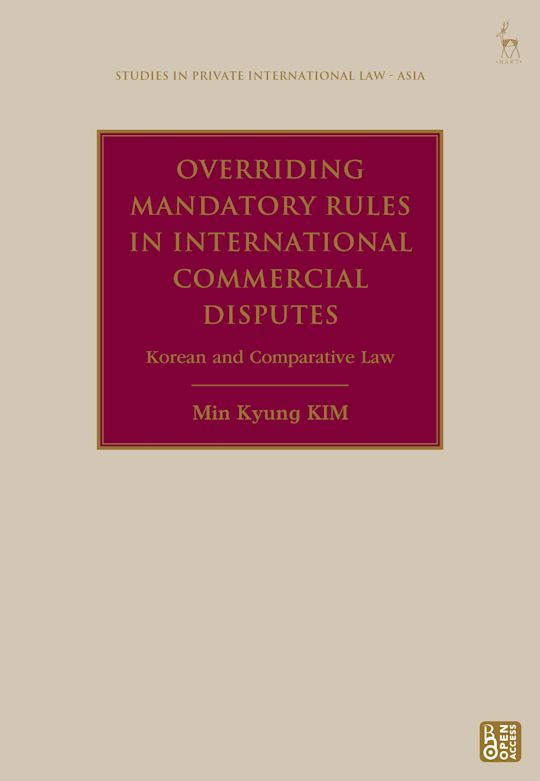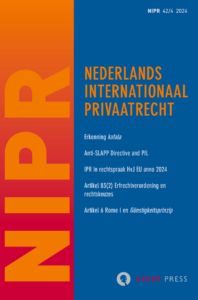Views
New Proposed Rules on International Jurisdiction and Foreign Judgments in Morocco
Last Thursday, November 9, Draft No. 02.23 proposing the adoption of a new Code of Civil Procedure (al-musattara al-madaniyya) was submitted to the Moroccan House of Representatives. One of the main innovations of this draft is the introduction, for the first time in Moroccan history, of a catalogue of rules on international jurisdiction. It also amends the existing rules on the enforcement of foreign judgments.
The Jurisdiction Puzzle: Dyson, Supply Chain Liability and Forum Non Conveniens
Written by Dr Ekaterina Aristova, Leverhulme Early Career Fellow, Bonavero Institute of Human Rights, University of Oxford
On 19 October 2023, the English High Court declined to exercise jurisdiction in Limbu v Dyson Technology Ltd, a case concerning allegations of forced labour and dangerous conditions at Malaysian factories which manufactured Dyson-branded products. The lawsuit commenced by the migrant workers from Nepal and Bangladesh is an example of business and human rights litigation against British multinationals for the damage caused in their overseas operations. Individuals and local communities from foreign jurisdictions secured favourable outcomes and won jurisdictional battles in the English courts over the last years in several notable cases, including Lungowe v Vedanta, Okpabi v Shell and Begum v Maran.
Navigating Global Jurisdiction: The Indian Courts’ Approach to Online IP Infringement
Written by Akanksha Oak, Jindal Global Law School, India
Introduction
The modern commerce landscape faces a significant challenge: the widespread infringement of intellectual property (“IP”) rights due to online interactions that enable instant global access. This issue is exacerbated by cross-border activities, necessitating the application of private international law (“PIL”). However, IP protection remains territorial, guided by the principle of “lex loci protectionis.” This results in complexities when it intersects with PIL. Online IP infringement further convolutes matters due to the internet’s omnipresence and accessibility, making the establishment of jurisdiction a complicated process for legal professionals. A pivotal development in this arena occurred in 2021 when the Delhi High Court rendered a judgement in the case of HK Media Limited and Anr v. Brainlink International Inc.,[1] illuminating India’s legal framework for determining jurisdiction in cases of online IP infringement within the context of cross-border disputes.
News
Out Now: Kim, Overriding Mandatory Rules in International Commercial Disputes [Open Access]
As part of Hart’s Studies in Private International Law – Asia, Min Kyung Kim, Judge at the Incheon District Court in Korea, just published her new book on Overriding Mandatory Rules in International Commercial Disputes: Korean and Comparative Law.
The impressive monograph, just shy of 200 pages, takes a comprehensive look at the role of overriding mandatory rules in international commercial litigation and arbitration, using Korea as a vantage point. It takes a close look at a large variety of (mainly European) sources in order to interpret and critically discuss the Korean Act on Private International Law, with a particular focus on the treatment of third-country mandatory rules. The book also identifies a range of potentially overriding mandatory provisions in Korean law.
The book is available open access at the publisher’s website.
Dutch Journal of PIL (NIPR) – issue 2024/4
The latest issue of the Dutch Journal on Private International Law (NIPR) has been published.
EDITORIAL
M.H. ten Wolde / p. 626-628
ARTICLES
A. Mens, De kwalificatie en de rechtsgevolgen van de erkenning van een kafala op grond van het Nederlandse internationaal privaatrecht/ p. 628-649
Abstract
This article focuses on the qualification and legal consequences of recognising a kafala under Dutch private international law. A kafala is a child protection measure under Islamic law, which entails an obligation to care for, protect, raise, and support a child, but without any implications for lineage or inheritance rights. The main conclusion is that a kafala generally constitutes both a guardianship and a maintenance decision. Consequently, the recognition of a foreign kafala in the Netherlands essentially entails the recognition of both the guardian’s (kafil) authority over the child (makful) and the recognition of the guardian’s maintenance obligation towards the child.
B. van Houtert, The Anti-SLAPP Directive in the context of EU and Dutch private international law: improvements and (remaining) challenges to protect SLAPP targets / p. 651-673
Abstract
Read more
“The Law(s) of the Arbitration Agreement” by Professor Ron Brand
A recent study by the Law Commission of England and Wales has resulted in proposed amendments to the Arbitration Act 1996 that include a default rule that an arbitration agreement will be governed by the law of England and Wales if the arbitration is seated in that territory. Given the importance of London as an arbitration center, this has implications for many international commercial contracts.
In his new article, Professor Ron Brand from the University of Pittsburgh School of Law challenges the premise behind the proposed amendment that there is a single “law of the arbitration agreement.” Instead, he demonstrates that there are multiple laws applicable to an arbitration agreement. He explains this multiplicity of applicable laws by considering the possible grounds for challenge of jurisdiction of an arbitral tribunal based on the arbitration agreement. Such an analysis demonstrates that very different laws may apply to questions of the existence, formal validity, substantive validity, scope, and exclusivity of an arbitration agreement. He reviews these issues in the broader context of choice of forum clauses generally, including both arbitration and choice of court agreements, and then considers a hypothetical international commercial transaction in which questions might arise about the first four of these five jurisdictional questions – demonstrating both the problems with the idea of a single “law of the arbitration agreement,” as well as the practical impact and importance of well-drafted choice of forum agreements, including provisions on choice of law. Although prompted by the proposed change in English law, this discussion has implications for the law in every jurisdiction regarding agreements to arbitrate, indicating that both transaction planners and dispute resolution lawyers need to be cognizant of the laws applicable to arbitration and choice of court agreements.
The article is available here.


